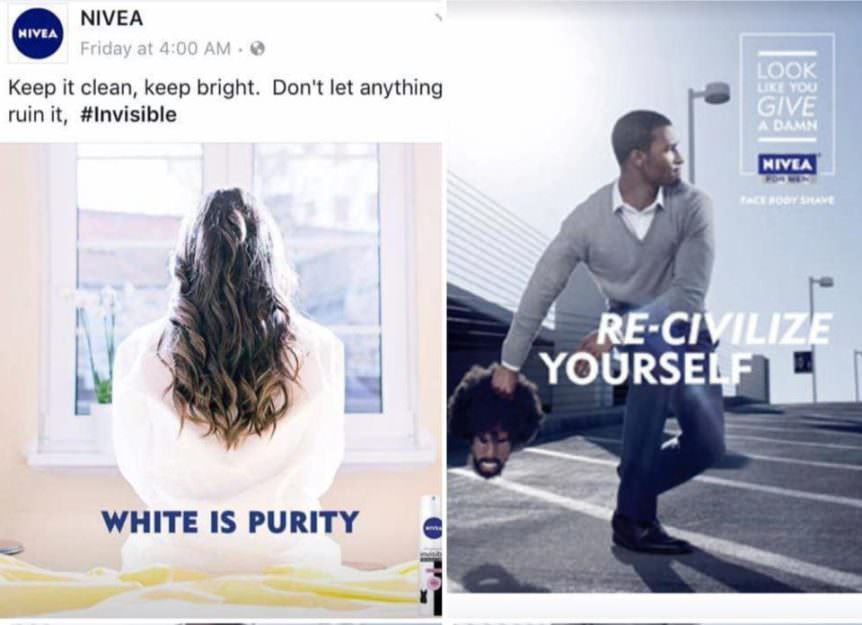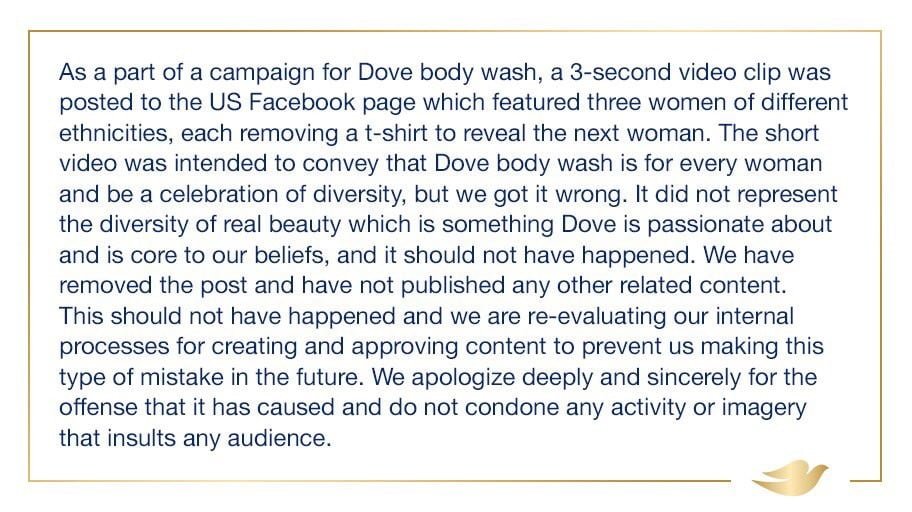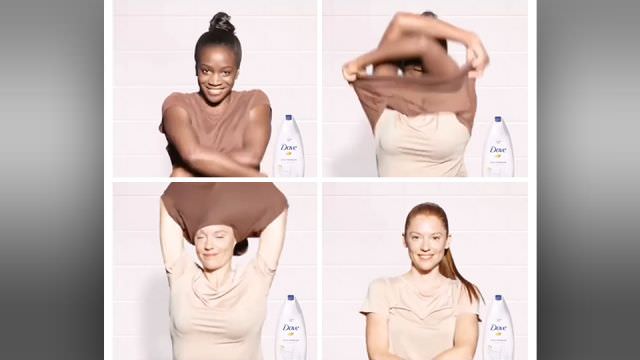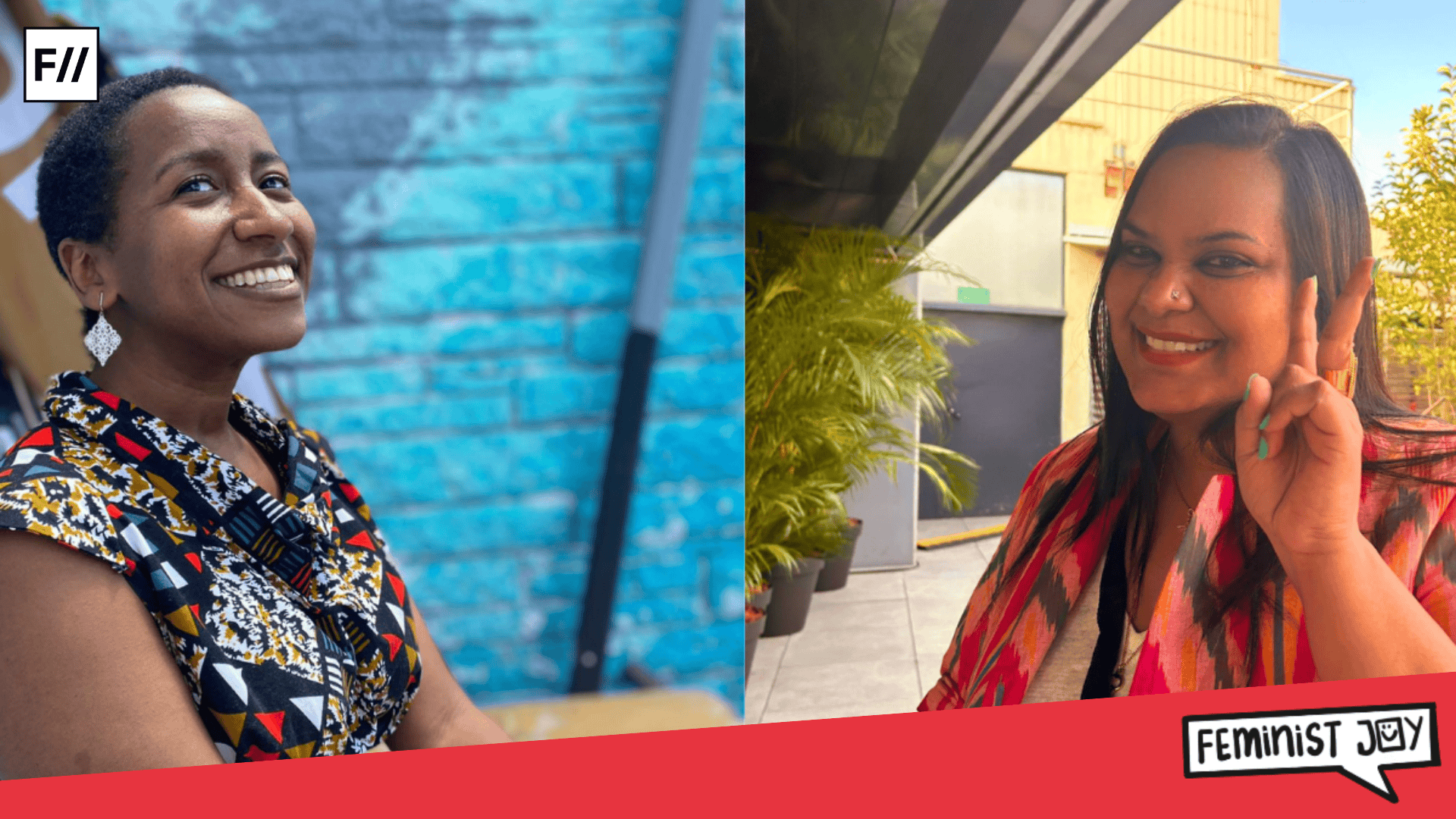Like several other beauty brands, Dove is increasingly trying to position its products as inclusive and its branding as representative of diversity among women (take for example its ‘Real Beauty‘ campaign).
But a recent ad titled ‘Ready for a Dove Shower’ shows how superficial this commitment often is. The gif shows a black woman wearing a beige t-shirt, taking it off and turning in a white woman by the end of the gif (!). This is hardly surprising and Dove is hardly the first or last brand to do this. Earlier this year, Nivea advertised for a deodorant with the tagline ‘White is Purity‘. And a Chinese detergent brand managed to change a black man into a lighter-skinned Asian man in this ad.
 Of course Dove followed up with an apology: “An image we recently posted on Facebook missed the mark in representing women of color thoughtfully. We deeply regret the offense it caused.” It took the gif down but not before the image had gone viral and had people fuming.
Of course Dove followed up with an apology: “An image we recently posted on Facebook missed the mark in representing women of color thoughtfully. We deeply regret the offense it caused.” It took the gif down but not before the image had gone viral and had people fuming. The question still remains though, what was the ad trying to represent and who were the women it claims to be representing. This hat tip to diversity, that has become more and more common as an advertising strategy, is more lip service and wilful ignorance than anything else. Brands and companies are well aware that even if their reputation and value is dinged for a while, eventually people will forget and move on. But the question remains – how does this even happen? How does this happen repeatedly? How does this happen in ways that always minimize people of color (and within advertisements often women).
The question still remains though, what was the ad trying to represent and who were the women it claims to be representing. This hat tip to diversity, that has become more and more common as an advertising strategy, is more lip service and wilful ignorance than anything else. Brands and companies are well aware that even if their reputation and value is dinged for a while, eventually people will forget and move on. But the question remains – how does this even happen? How does this happen repeatedly? How does this happen in ways that always minimize people of color (and within advertisements often women).
Here’s one hypothesis on what the ad is about — it’s a whitewash of an ad, premised on the centuries-old sales pitch, that all women must want to be white, and if they cannot be white, then lighter than their current skin tone. Hey, I am a nineties kid and grew up on a steady diet of Fair and Lovely advertisements, so this pitch is not new to me. I am trying to think what was going on in the mind of the person who put together this gif and the person who let this go through. I cannot understand and most consumers and viewers cannot either, especially people of color.
There is no doubt that ads aim to get us to buy by selling us an idea or illusion, a promise to our ‘more attractive and better’ selves. As the lines between entertainment, advertising and other media, social media and our lives get increasingly blurred, brands have identified being socially conscious and responsible as a way to distinguish themselves. But all of that is meaningless if organizations cannot or will not do the work of understanding the people they are marketing to and continue with lazy, stereotyped ads.
Also read: Femvertising: How Corporates Co-opt Feminism To Sell Us Things
About the author(s)
Feminist and Indian. Interests include gender, education, mental health and wellness. India/US.




